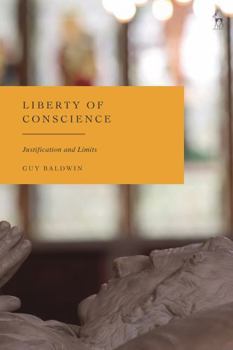Liberty of Conscience: Justification and Limits
This book sets out a novel account of the conceptual foundations of liberty of conscience based on John Rawls's concept of moral personality.
Liberty of conscience (often called religious freedom) is a notoriously broad right. As understood in many legal systems, it can extend to virtually any action or inaction, ranging from dietary choices to objections to military service, and potentially provide protection against the application of a state's laws in respect of that action or inaction. To understand the proper limits of this right, it is necessary to inquire into its conceptual foundations. The book shows that protection of liberty of conscience is warranted because of its importance to the exercise and development of the two moral powers of individuals that comprise their moral personality: the power to judge right and justice, and the power to form and pursue a conception of the good. However, some possible limitations for the right relating to the rights of others and the common interest flow from this rationale. Utilising this theoretical account, the book analyses two case studies at the limits of religious freedom in the law of the UK and USA: pandemic lockdown restrictions on religious gatherings, and non-discrimination laws in their application to same-sex couples.Format:Hardcover
Language:English
ISBN:1509985271
ISBN13:9781509985272
Release Date:September 2026
Publisher:Hart Publishing
Length:256 Pages
Weight:1.00 lbs.
Dimensions:1.0" x 6.1" x 9.2"
Related Subjects
LawCustomer Reviews
0 rating





